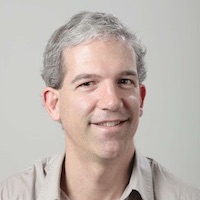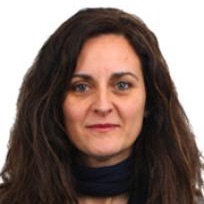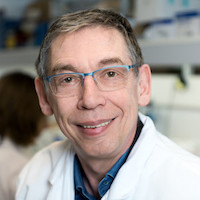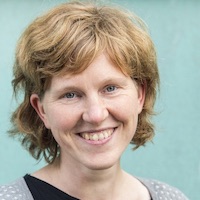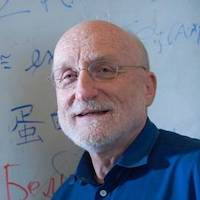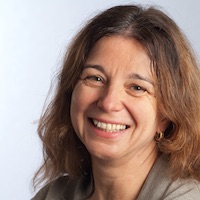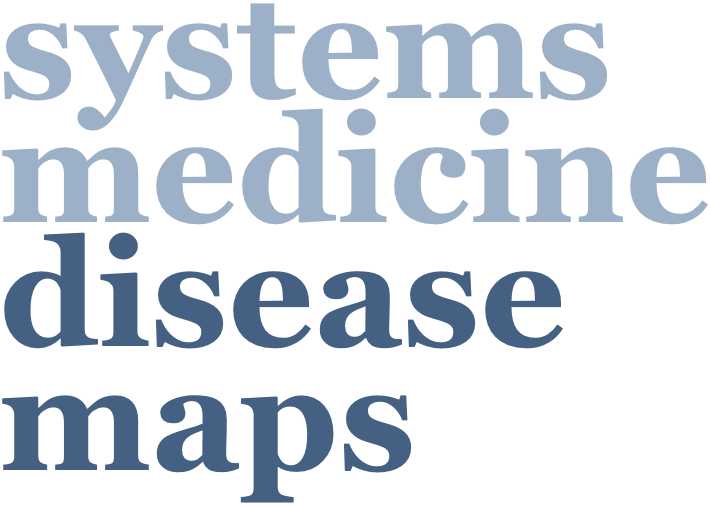

The key theme of the 2020 Disease Maps Community Meeting is COVID-19. The event is organised as a virtual conference by the Luxembourg Centre for Systems Biomedicine.
The first day of the meeting will be dedicated to COVID-19, the second and the third days will be dedicated to ongoing community projects.
- For main DMCM20 agenda see below
- For the poster sessions see here
- Open discussions on Saturday the 14th: see current topics in the agenda below; contact us to suggest a discussion topic.
Registration
The registration is free but mandatory for all presenters and attendees.
Register here by 12 November 2020.
Virtual environment
This webpage is the entry point for all events of the programme.
We use Webex Meetings to host live talks and the discussion panels.
The virtual posters will be deposited and hosted on Zenodo platform.
Useful infromation on how to join and our code of conduct
For presenters
The detailed instructions about profile generation, poster standards, video recordings, materials uploading to the Zenodo platform can be found here.
Invited speakers
|
Vassili Soumelis, MD, PhD Hôpital St Louis, Paris, France |
|
Maria-Jesus Martin, PhD EMBL-EBI, Cambridge, UK |
|
Olivier Lantz, MD, PhD Institut Curie, Paris, France |
|
Dagmar Waltemath, PhD Greifswald University Hospital |
|
Chris Sander, PhD Dana–Farber Cancer Institute |
|
Ina Koch, PhD Goethe University Frankfurt |
Programme
The time is shown for Paris: Central European Time (CET) – UTC/GMT +1 hour.
Please check your local time here.
Thursday 12 November
Session 1 (Meeting room A)
Session chair: Rudi Balling
09.00-09.30 [Talk 1]: Introductory lecture: COVID-19 Disease Map project Marek Ostaszewski
09.30-10.10 [Talk 2]: KEYNOTE The Curiosa study: high seroprevalence but short-lived immune response to SARS-CoV-2 infection in Paris Olivier Lantz
10.10-10.30 [Talk 3]: Connecting the COVID-19 dots: susceptibility factors and their immunodynamics in SARS-CoV-2 infection and disease severity Rupsha Fraser, Aurelio Orta-Resendiz and Alexander Mazein
10.30-10.50 [Talk 4]: Looking for pathways related to COVID-19 phenotypes: Confirmation of pathogenic mechanisms by SARS-CoV-2 - Host interactome Francesco Messina, Emanuala Giombini, Chiara Montaldo, Mauro Piacentini, Maria R. Capobianchi, Francesco Nicola Lauria and Giuseppe Ippolito
10.50-11.10 Break and Posters session A (agenda)
11.10-11.30 [Talk 5]: The WikiPathways COVID-19 Community Portal Martina Kutmon, Friederike Ehrhart, Denise Slenter, Kristina Hanspers, Egon Willighagen, Alexander Pico and Chris Evelo
11.30-11.50 [Talk 6]: ViralLink: An integrated workflow to investigate the effect of SARS-CoV-2 on intracellular signalling and regulatory pathways Agatha Treveil, Dezso Modos and Tamas Korcsmaros
11.50-12.10 [Talk 7]: Cov-Hipathia: A tool for mechanistic modeling of the SARS-CoV-2 disease map Kinza Rian, Marina Esteban Medina, Devrim Gunyel, Carlos Loucera, Marek Ostaszewski, Anna Niarakis, Maria Peña-Chilet and Joaquin Dopazo
12.10-13.30 Lunch and Posters session B (agenda)
Session 2 (Meeting room A)
Session chair: Reinhard Schneider
13.30-14.00 [Talk 8]: Introductory lecture: Modelling approaches in COVID-19 Disease Map project Anna Niarakis
14.00-14.40 [Talk 9]: KEYNOTE Informatics resources for COVID-19 proteomics, viral evolution and drug effects Chris Sander
14.40-15.00 [Talk 10]: The INDRA Database and Network Search: Comprehensive, context-specific information on biochemical interactions John Bachman, Benjamin Gyori, Patrick Greene and Klas Karis
15.00-15.20 [Talk 11]: Reactome DisGeNET overlay of gene-disease associations Chuan Deng, Chuqiao Gong, Guilherme Viteri and Henning Hermjakob
15.20-15.50 Break and Posters session C (agenda)
15.50-16.10 [Talk 12]: Coronavirus Interactome: The IMEx dataset of host-viral biomolecular interactions Kalpana Panneerselvam, Pablo Porras Millan, Noemí del Toro, Margaret Duesbury, Livia Perfetto, Anjali Shrivastava, Sandra Orchard and Henning Hermjakob
16.10-16.30 [Talk 13]: Modelling of the SARS-CoV-2 life cycle and interactions with host cellular defense systems Liam Fergusson, Joly Ghnanawi and Tom Freeman
16.30-16.50 [Talk 14]: SEEK and Find: FAIRDOM Data Management Support for COVID-19 Disease Maps Martin Golebiewski, Xiaoming Hu, Stuart Owen, Olga Krebs, Munazah Andrabi, Finn Bacall, Ina Poehner, Maja Rey, Jacky Snoep, Alan Williams, Ulrike Wittig, Katy Wolstencroft, Carole Goble and Wolfgang Müller
16.50-17.20 [Talk 15]: KEYNOTE Single cell RNAseq analysis of severe COVID-19 patients antigen-presenting cells Vassili Soumelis
17.30-18.30 Virtual apéro (Meeting room A / Discussion Room 1 / Discussion Room 2)
Friday 13 November
Session 3 (Meeting room A)
Session chair: Henning Hermjakob
09.00-09.20 [Talk 16]: Opening lecture: Disease Maps: knowledge formalisation for understanding common and different in human disease mechanisms Inna Kuperstein
09.20-10.00 [Talk 17]: KEYNOTE Deciphering molecular mechanisms of disease: a view on protein knowledge and disease maps Maria-Jesus Martin
10.00-10.20 [Talk 18]: Discovering the role of intercellular communication and its downstream effect in healthy and diseased conditions Lejla Gul, Dezso Modos, Denes Turei, Alberto Valdeolivas, Matthew Madgwick, Julio Saez-Rodriguez and Tamas Korcsmaros
10.20-10.40 Break and Posters session D (agenda)
10.40-11.00 [Talk 19]: A multi-layer scalable representation of disease mechanisms: lessons learned from the AsthmaMap project Alexander Mazein and Charles Auffray
11.00-11.20 [Talk 20]: Comprehensive Map of the Regulated Cell Death Signaling Network: A Powerful Analytical Tool for Studying Diseases Jean-Marie Ravel, L. Cristobal Monraz Gomez, Nicolas Sompairac, Boris Zhivotovsky, Guido Kroemer, Emmanuel Barillot, Andrei Zinovyev and Inna Kuperstein
11.20-11.40 [Talk 21]: Inference of a modular, large-scale Boolean network for modelling the Rheumatoid Arthritis fibroblast-like synoviocytes Vidisha Singh, Sylvain Soliman and Anna Niarakis
11.40-12.00 [Talk 22]: HCM Map: Interactive Knowledge Resource About Molecular Mechanisms of Hypertrophic Cardiomyopathy Mila Glavaški and Lazar Velicki (cancelled due to technical issues - moved to 17:45)
12.00-13.30 Lunch and Posters session E (agenda)
Session 4 (Meeting room A)
Session chair: Rupert Overall
13.30-13.50 [Talk 23]: Opening lecture: Disease map construction approaches: best practices Alexander Mazein
13.50-14.10 [Talk 24]: CyF-MAP: a pathway-based resource for Cystic Fibrosis Catarina Pereira, Alexander Mazein, Margarida Amaral and Andre Falcao
14.10-14.30 [Talk 25]: SysCID map: a computational knowledge repository for rheumatoid arthritis, systemic lupus erythematosus and inflammatory bowel disease Marcio Acencio, Marek Ostaszewski, Wei Gu, Venkata Satagopam and Reinhard Schneider
14.30-14.50 [Talk 26]: Towards modularity and composability for assembling large-scale process description maps Adrien Rougny, Alexander Mazein, Jonathan Karr, Julio Saez Rodriguez, Marek Ostaszewski and Reinhard Schneider
14.50-15.10 Break and Posters session F (agenda)
15.10-15.50 [Talk 27]: KEYNOTE Adding value to scientific results using COMBINE standards and guidelines for modelling and simulation in systems medicine Dagmar Waltemath
15.50-16.30 [Talk 28]: KEYNOTE Petri nets for the analysis of disease maps: applied to the TNFR1 signaling pathway Ina Koch
16.30-16.45 Break
16.45-17.05 [Talk 29]: Newt: view, design and analyze pathways in SBGN and more Ugur Dogrusoz
17.05-17.25 [Talk 30]: Reactome COVID-19: the literature curation strategy Andrea Senff-Ribeiro, Robin Haw, Lisa Matthews, Solomon Shorser, Peter D’Eustachio and Marc Gillespie
17.25-17.45 [Talk 31]: A suite of plugins for data-driven analyses of acute inflammatory phenotypes Matti Hoch, Suchi Smita, Olaf Wolkenhauer and Shailendra Gupta
17.45-18.05 [Talk 32]: HCM Map: Interactive Knowledge Resource About Molecular Mechanisms of Hypertrophic Cardiomyopathy Mila Glavaški and Lazar Velicki
18.05-18.30 Virtual apéro (Meeting room A / Discussion Room 1 / Discussion Room 2)
Saturday 14 November
10:00 - 10:30 [Talk 33]: Introductory talk: COVID-19 Disease Map at the EUvsVirus Hackathon - making the map work Anna Niarakis
10:30 - 12:00 Breakout discussions
Proposed topics for breakout discussions:
Interoperability, common standards and practices. Working together at a larger scale. Lessons learned from the C19DM effort. Confidence in information quality. The granularity of processes representation. Manual vs. text mining mode of literature curation: humans versus machines.
Meeting Room A
Integrating disease subtypes in maps and models. Since one pathology can have many subtypes, would it be possible to have the same disease map and reflect different phenotypic behaviour? Should an extra layer of disease subtypes be added to the maps?
Discussion Room 1
How to do curation and integrate the efforts of many groups. Training materials and guidelines: level of detail, target audience. Pathway curation vs. disease map curation? What is a good map? What are the criteria? Reusable modules? Complexity reduction?
Discussion Room 2
From maps to models. Map and model are the same? How much of abstraction is meaningful? Updates to maps and models – can we automate the process? Should we simplify our efforts in curation since we do not model details? Guidelines for different modelling approaches.
Discussion Room 3
We would like to thank Henning Hermjakob, Aleksei Nacharov, Viviam Solangeli Bermudez Paiva and Thawfeek Mohamed Varusai who contributed to shaping the discussion topics.
12.00-13.00 Lunch break
13:00 - 14:00 Summary of discussions
Meeting Room A
14:00 Closing remarks
Contact
For any questions please contact organisers at dmcm-organisers@googlegroups.com.
Acknowledgements
We would like to thank Marion Ferraez for her help with the design of the event page.
Organisers
Event organisers
Marek Ostaszewski
Inna Kuperstein
Anna Niarakis
Alexander Mazein
Reinhard Schneider
Disease Maps Project Coordinators
Alexander Mazein
Marek Ostaszewski
Inna Kuperstein
Anna Niarakis
Andrei Zinovyev
Reinhard Schneider
Emmanuel Barillot
Rudi Balling
Charles Auffray
